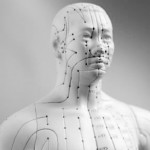 Traditional Chinese medicine is a large practice composed of many aspects. There is acupuncture (the use of small needles to free and aid one’s qi), qi gong (a self healing art that combines meditation and movement), massage therapy, herbs, and various manners of meditation, to name a few. Each practice has specific ailments that it can aid, and some may overlap in their benefits. For example, there is new evidence that the ancient arts of acupuncture and qi gong can help with hypertension, also known as high blood pressure.
Traditional Chinese medicine is a large practice composed of many aspects. There is acupuncture (the use of small needles to free and aid one’s qi), qi gong (a self healing art that combines meditation and movement), massage therapy, herbs, and various manners of meditation, to name a few. Each practice has specific ailments that it can aid, and some may overlap in their benefits. For example, there is new evidence that the ancient arts of acupuncture and qi gong can help with hypertension, also known as high blood pressure.
High blood pressure directly increases the risk of coronary heart disease (which leads to heart attack) and stroke, especially when it’s present with other risk factors. Western medicine generally prescribes medication and healthier eating habits to control hypertension. While these lifestyle changes are always benefi cial, there are some Eastern practices that may prove even more successful, particularly when in conjunction with those from the West.
The National Center for Biotechnology Information (NCBI) published a study in 2003 that declared qi gong reduced blood pressure and catecholamine (chemical compound) levels in patients with essential hypertension. Fifty-eight patients volunteered to participate in this study and were randomly divided into either a qi gong group or a wait list control group. In response to 10 weeks of qi gong, systolic blood pressure (SBP), diastolic blood pressure (DBP), and rate pressure product (RPP) were decreased significantly. In the conclusion, the results suggest that qi gong may reduce BP and catecholamines via stabilizing the sympathetic nervous system.
Medscape Medical News published an article called Blood Pressure Changes with Acupuncture Comparable to Those with ACE Inhibitor Monotherapy. Shelley Wood describes the study that the article was based on and explains that it’s the first randomized trial in the West to test acupuncture against sham needle technique to treat hypertension. The conclusion of the study was positive in regard to acupuncture, stating it successfully lowered blood pressure levels. Wood also explains that acupuncture must be consistently practiced to maintain its benefits on high blood pressure. Like healthy eating or exercise, acupuncture treatments should be consistent for the best long-term results. Once high blood pressure occurs, it can last a lifetime. Known as the silent killer because of its lack of symptoms, it makes perfect sense that alternative medical practices that focus on being in tune with one’s own body, such as qi gong or acupuncture, are successful tools for monitoring and lowering blood pressure.
For more information on how TCM can help to lower blood pressure, please contact Pacific College of Oriental Medicine at (800) 729-0941 or visit www.PacificCollege.edu
About Tony Cecala
Tony is a business strategist. He publishes the Holistic Networker and produces the Wellness Expo. In his spare time he reads about technology and the mind.
- Web |
- Flickr |
- More Posts(165)










